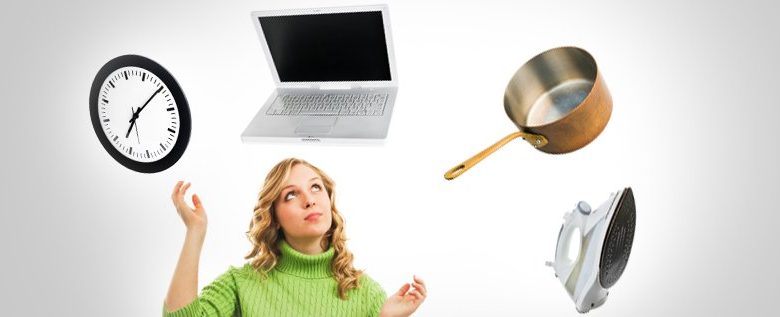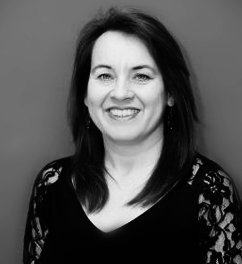
Would you like to declutter your life?
Do you have too much stuff in your home, in your diary, or in your head? Juliet Landau-Pope, who has Charcot Marie Tooth, is a certified coach and leading member of the Association of Professional Declutterers & Organisers (APDO-UK). She helps people to liberate their space and schedules, and to escape from limiting stereotypes, including attitudes towards disability.
What is a professional declutterer?
I define clutter as anything that gets in the way of what you want to do in life, sapping energy, creativity and motivation. People can be overwhelmed by papers, books, clothes and household stuff, or by too many commitments in their diaries. Many of us also clutter up our minds with limiting beliefs and negative attitudes. So I work with individuals and groups to declutter, both materially and metaphorically. It’s a very liberating process and has clear benefits, not only improving the physical environment in which people live and work, but also alleviating stress.
What’s your disability?
 I have Charcot-Marie-Tooth (CMT), also known as hereditary motor and sensory neuropathy. As a result, I walk with difficulty due to the classic CMT drop-foot and have problems balancing so depend on a walking stick when I’m out and about. Muscle wasting in my hands also limits fine motor skills so I struggle to do up buttons and zips.
I have Charcot-Marie-Tooth (CMT), also known as hereditary motor and sensory neuropathy. As a result, I walk with difficulty due to the classic CMT drop-foot and have problems balancing so depend on a walking stick when I’m out and about. Muscle wasting in my hands also limits fine motor skills so I struggle to do up buttons and zips.
Thanks to my Motability car, I’m able to drive to clients’ homes or offices, but need to request a parking place nearby. I let people know in advance that I can’t stand for long, nor can I carry things up and downstairs because I need to hold onto a handrail. Since I’m working closely with people, I don’t find it difficult to be upfront and direct about what I can and can’t do. In fact, I find it helps to build rapport.
What does your work actually entail?
I help clients to sort out household stuff and coach them to make positive and purposeful choices about what to discard, donate, reuse or recycle. Most importantly, perhaps, I motivate people to develop new routines to deal with challenges, such as the never-ending stream of paperwork or the impulse to stockpile more food or clothes than they need.
I also offer advice on disposing unwanted goods as ethically as possible, including donating to charities. Many of my clients are dealing with transitions such as bereavement, divorce or separation; others are keen to save time and money before renovating or moving; and some are just keen for more order and simplicity.
I’m often contacted by people who welcome the support and motivation that comes from group discussions. As a result, I’ve launched coaching workshops called Declutter Your Life, to share practical tips on managing time and space.
In addition, I talk to businesses, charities and community groups about decluttering as a new approach to time management because it involves making decisions, learning to plan, prioritise and – perhaps most importantly – to say ‘no’.
How do you declutter attitudes to disability?
I’ve given talks to many charities and support groups for people with CMT as well as other conditions such as MS and ADHD. Decluttering provides a powerful metaphor for letting go of limiting beliefs and attitudes.
I don’t underestimate the difficulties faced by people with disabilities – myself included – but I’m keen to share what I’ve learned from positive psychology and coaching. Living with a progressive illness such as CMT, it’s tempting to feel anxious about what the future and this contributes to emotional clutter. Mindfulness is key – being fully present in the moment, focusing on the current experience rather than worrying unduly about the past or future.
How did you become a declutterer?
During my student days, I moved frequently to and from Oxford, London, Paris, Jerusalem and Cairo. I became adept at packing and organising, learning from mistakes as well as successes – and friends who needed to declutter often asked me for advice. I’ve worked for several years as a university lecturer, writer, editor and consultant, most recently teaching social sciences at the Open University.
My passion for motivating people led me to train in 2008 as a coach and it was then that I realised I could apply coaching skills to my zest for decluttering – and so the business was born! I joined APDO-UK and I’m now on the operations team, contributing to the development of the decluttering and organsing industry in the UK.
What do you enjoy most about your work?
Decluttering involves building strong connections with my clients – it requires a huge amount of trust and a lot of empathy and humour. It’s important to me to know that I’m making a tangible and visible difference in people’s lives – and the positive responses I receive from individuals and groups is always uplifting. The work is also quite physical – stretching into cupboards, carrying bags, moving things about – so it helps me keep fit.
The training aspect of my work is also varied and fascinating, and I’m constantly exploring new partnerships with local businesses and community groups in London.
To find out more about Juliet’s work and her Declutter Your Life course, visit her website.
By Juliet Landau-Pope
Check out…
• Models of Diversity: could you be the next hot disabled model?
• Clubbing: brilliant or just plain boring?
• Sweet Taboo: theatre breaking down barriers
Get in touch by messaging us on Facebook, tweeting us @DHorizons, emailing us at editor@disabilityhorizons.com or leaving your comments below.